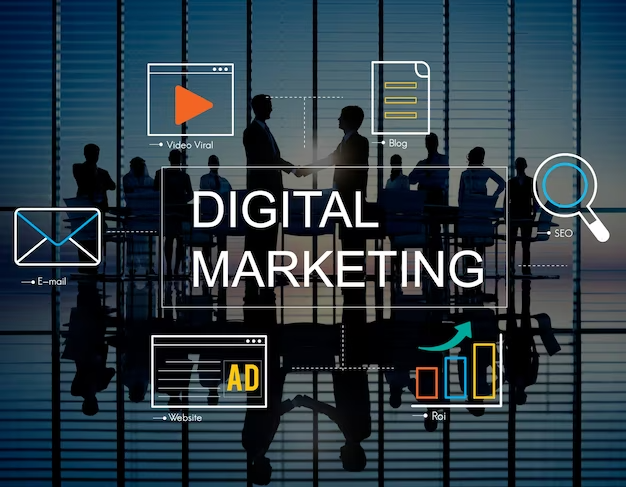
Introduction
In the dynamic world of online business, digital marketing serves as a powerful tool for attracting customers, building brand awareness, and driving growth. Online businesses rely heavily on effective digital marketing strategies to reach their target audience, establish a strong online presence, and stay ahead in the competitive marketplace. This article explores key digital marketing strategies specifically tailored for online businesses to maximize their success.
- Define Your Target Audience: To effectively market your online business, start by clearly defining your target audience. Understand their demographics, interests, and online behaviors. Conduct market research and create buyer personas to gain insights into their preferences and pain points. This knowledge will inform your marketing strategies and ensure that your efforts are directed toward the right audience.
- Develop a Professional Website: Your website serves as the digital storefront for your online business. Create a professional, user-friendly website that reflects your brand and provides a seamless browsing experience. Optimize your website for search engines (SEO) by incorporating relevant keywords, optimizing page load speed, and ensuring mobile responsiveness. Clear navigation, compelling product descriptions, and intuitive design are vital for converting visitors into customers.
- Implement Search Engine Optimization (SEO): A strong SEO strategy is essential for increasing your online visibility and attracting organic traffic. Conduct keyword research to identify relevant search terms and incorporate them strategically into your website’s content, meta tags, headings, and URLs. Create high-quality, informative content that aligns with user search intent. Build quality backlinks and optimize your website’s technical aspects to improve search engine rankings.
- Content Marketing: Content marketing plays a pivotal role in establishing your online business as an authoritative source and attracting potential customers. Create valuable, relevant content such as blog posts, videos, infographics, and guides that address your audience’s pain points, answer their questions, or provide insights. Consistently publish and promote this content on your website, social media platforms, and through email newsletters to engage and educate your target audience.
- Social Media Marketing: Leverage the power of social media to promote your online business, engage with your audience, and drive traffic to your website. Identify the social media platforms where your target audience is most active and create compelling profiles. Share engaging content, product updates, customer testimonials, and promotions. Engage with your followers by responding to comments, addressing inquiries, and participating in relevant conversations. Leverage social media advertising to reach a wider audience and drive conversions.
- Email Marketing: Build an email list of interested prospects and existing customers to nurture relationships and drive repeat business. Create targeted email marketing campaigns that deliver personalized content, product recommendations, or exclusive offers. Segment your email list based on customer preferences, purchase history, or demographics to tailor your messages effectively. Utilize automation to send timely emails, such as abandoned cart reminders or post-purchase follow-ups.
- Influencer Collaborations and Affiliate Marketing: Collaborate with influencers in your industry to amplify your brand’s reach and tap into their engaged audience. Identify influencers whose values align with your brand and whose audience matches your target market. Collaborate on sponsored content, product reviews, or social media takeovers to generate awareness and drive traffic. Additionally, consider implementing an affiliate marketing program to incentivize affiliates to promote your products or services.
- Data Analysis and Optimization: Regularly analyze your digital marketing efforts using web analytics tools to gain insights into your online business’s performance. Monitor website traffic, conversion rates, customer behavior, and engagement metrics. Use this data to identify areas for improvement, optimize your strategies, and make informed decisions. Continuously test and refine your marketing campaigns to maximize results and drive growth.

Conclusion
Digital marketing is an indispensable component of success for online businesses. By defining your target audience, developing a professional website, implementing SEO and content marketing strategies, leveraging social media and email marketing, collaborating with influencers, and analyzing data for optimization, you can effectively promote your online business and drive growth. Embrace the dynamic nature of the digital landscape, adapt to emerging trends, and consistently engage with your target audience to establish a strong online presence and achieve your business goals.
If you are looking to buy one click here, contact us here
Follow us on Instagram
